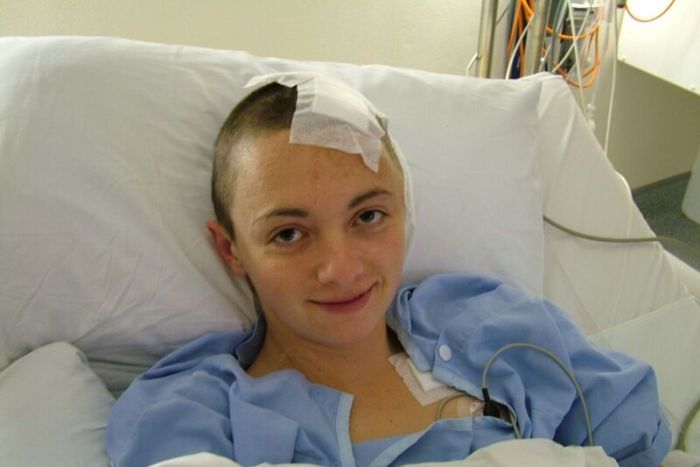Stroke diagnosis helmet could help doctors save lives, prevent major brain damage: experts
Updated
People suspected of having a stroke could soon be accurately diagnosed and prepped for treatment by paramedics, with a new device being trialled by Australian researchers.
Key points:
- The helmet could diagnose strokes in ER and ambulance
- Australia is the first country to trial the device outside Europe
- Researchers say it could help save lives and prevent major brain damage
Professor Michael Nilsson, from the Hunter Medical Research Institute, said the portable helmet could help doctors save lives and intervene before major brain damage occurred.
"It has the capacity and the potential to be implemented in all ambulances globally. So it has game-changer potential which we are extremely excited about," he said.
The device is a helmet with a number of sensors. It works by emitting a very low level of microwave radiation to the patient's head which can detect bleeding patterns in the brain.
 Photo:
Professor Michael Nilsson fits the helmet on stroke survivor Rachael Peak (ABC News: Sophie Scott)
Photo:
Professor Michael Nilsson fits the helmet on stroke survivor Rachael Peak (ABC News: Sophie Scott)
Paramedics could then determine whether a patient is having a stroke due to a clot or a bleed.
That is important, because treatment is very different depending on the type of stroke.
"It's essential to know if it's a bleed or a clot because stroke units can treat the patients with a clot and dissolve the clot," Professor Nilsson said.
He said people labelled it the "Lazarus" effect.
"You come in very quick, you get the clot resolving therapy, and in the best cases, you can basically rise up and go home within the day. So it's essential to have that opportunity, to differentiate between the bleed and the clot."
Early diagnosis means early treatment: patient
Rachael Peak had a stroke when she was just 25. She became ill while on holiday in Queensland.
"I had numbness on my right side. I got up from bed to go to the toilet and I just collapsed. It was really shocking," she said.
Eventually, she was diagnosed with a condition called AVM.
It is a congenital disorder, where patients have a complex, tangled web of abnormal arteries and veins blood vessels in the brain.
During surgery to fix the condition, she suffered a stroke.
She said having a device which could identify strokes earlier would be fantastic.
"You should always get your diagnosis early," she said.
"The quicker you can get it, the more chance that you have of starting to recover."
Despite having a stroke, she went on to have a child, Mia, now aged five.
"They say no way when I asked about having a baby," she said.
"It's been excellent."
Topics: stroke, health, diseases-and-disorders, inventions, australia
First posted









